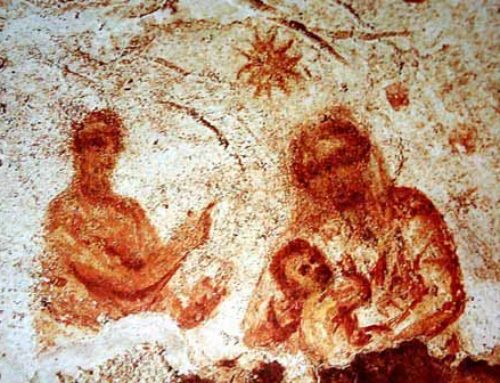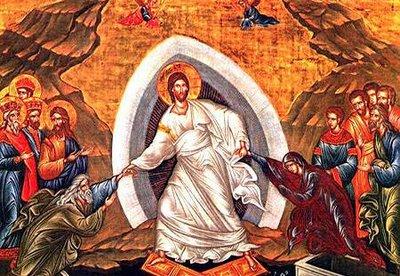In the first two chapters of the Gospels according to St Mathew and St Luke, it is clearly stated than Mary conceives her son with no male intervention:
“what is conceived in her is of the Holy Spirit”, the angel says to St Joseph (Matt 1:20). When Mary asked the angel, “”How shall this be, since I have no husband?”, the angel answered, “The Holy Spirit will come upon you, and the power of the Most High will overshadow you” (Luke 1:34-35).
Later on, as Jesus entrusted his Mother to John at the foot of the cross, the implication is that Our Lady did not have any other children.
The reference to “Jesus’ siblings”, occasionally made in the gospels, could well be attributed to the term “sibling” in Hebrew, which means “close relative”. It could be also be used in the sense often seen in the New Testament to refer to members of the group of believers (Acts 1:15).
The Church has always believed in Mary’s virginity, and has called her “the ever Virgin” (Lumen Gentium, 52); that is, before, during, and after birth, as stated in a traditional and devotional formula.
We understand Jesus’ virginal conception as the result of God’s power – “For with God nothing will be impossible” (Luke 1:37).
As such, it is beyond human understanding. This mystery has nothing to do with pagan mythological representations in which a god, acting as a man, fertilises a woman. The virginal conception of Jesus is a divine work in Mary’s womb, similar to that of creation. It is something that is not normally accepted by a non-believer: it was rejected by some contemporaneous Jews and pagans, who made up stories to explain Jesus’ conception.
One such story attributed it to a Roman soldier called Pantheras. He is, in fact, a fictional character, made to support an early legend mocking Christians. From a historical and philological point of view, the name “Pantheras” is a corruption of the Greek word “parthénos”, which means “virgin”. People who used Greek as their language in the Roman Empire heard that Jesus was “the son of the virgin” (huiós parthénos); when they wished to make fun of him, they referred to him as “the son of Pantheras”.
These stories only confirm that the early Church sustained her firm belief in Mary’s virginity, although it seemed to be something impossible.
Jesus’ virginal conception is above all a sign that Jesus is truly the Son of God by nature – so he does not have a natural human father – and he is also a man born of a woman (Gal 4:4). In various passages of the gospels, we can see God’s initiative, towards salvation, in human history, mostly evident as we follow Jesus’ genealogy through history.
Jesus, conceived by the Holy Spirit and without a man’s intervention, can be better understood as the new Adam, who begins a new creation for man newly redeemed by Him (1 Cor 15:47; John 3:34).
Mary’s virginity is also a sign of her firm faith and her absolute self-dedication to God’s will. For this reason, it has been said that Mary conceives Jesus in her mind even before she does so in her womb, and that she is “more blessed receiving Christ by her faith than conceiving her son in her womb” (St Augustine). By being Virgin and Mother, Mary is also a figure of the Church and her most perfect realisation.
Juan Chapa







Leave A Comment
You must be logged in to post a comment.